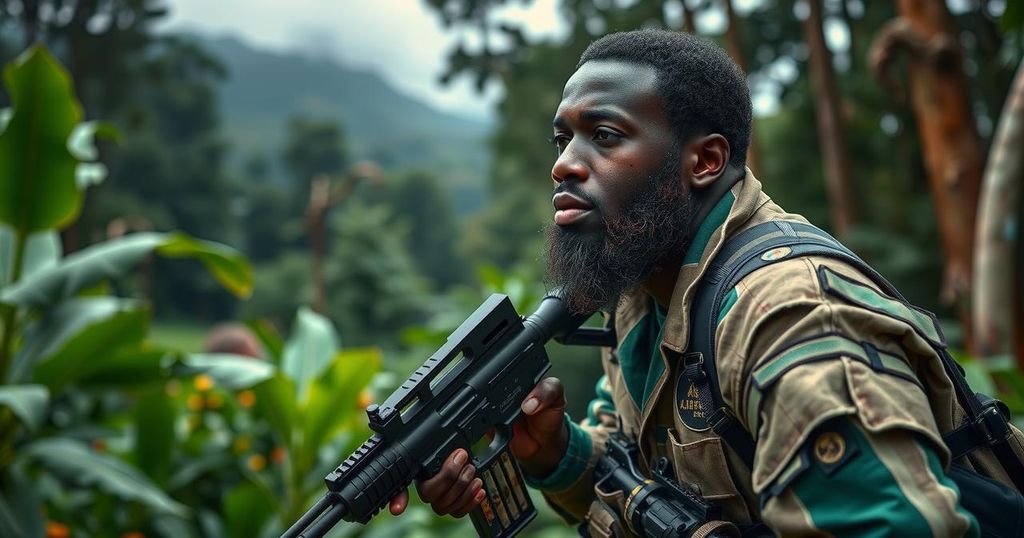DR Congo Accuses M23 Rebel Group of Ethnic Cleansing Amidst Ongoing Conflict
The DRC government has accused the M23 rebel group, allegedly supported by Rwanda, of committing “ethnic cleansing” in eastern Congo. Interior Minister Jacquemain Shabani cited violent expulsions of locals and highlighted the broader humanitarian crisis resulting in over seven million displaced individuals. The admission of Rwandan troop presence complicates the conflict, which is one of the world’s largest humanitarian emergencies.
The government of the Democratic Republic of the Congo (DRC) has leveled serious accusations against the M23 rebel group, alleging their actions in the eastern region amount to “ethnic cleansing.” According to Interior Minister Jacquemain Shabani, the region of North Kivu, specifically the territories of Rutshuru and Masisi, has seen a significant influx of foreign populations, which he claims is a result of violent expulsions of local residents. This claim follows M23’s recent appointment of administrators in the territories they assert control over.
The conflict in eastern Congo has been intensified by the resurgence of the M23 rebel group, which consists predominantly of ethnic Tutsis who previously defected from the Congolese army. The area has been subjected to violence due to the presence of over 100 armed factions vying for control over its rich natural resources. This turmoil has led to what UN experts describe as one of the worst humanitarian crises globally, displacing over seven million individuals, many unable to access necessary aid.
While Congo accuses Rwanda of involvement in this crisis, including alleged war crimes and military support for M23, Rwanda refutes these claims. However, Rwanda’s admission of troop presence in eastern Congo, directed towards maintaining its security amidst perceived threats, has raised further concerns. The UN estimates indicate that as many as 4,000 Rwandan soldiers could be operating within Congolese borders. Although a ceasefire brokered by the United States and Angola has curbed some hostilities between Rwandan and Congolese forces, confrontations between M23 and pro-government militias persist, exacerbating the humanitarian situation.
The conflict in eastern DR Congo has deep historical roots, particularly revolving around the dynamics of ethnic tensions and struggles over valuable minerals in the region. The M23 rebel group, formed primarily by ethnic Tutsis, has repeatedly clashed with government forces and various militias since its emergence in the early 2010s. This ongoing conflict has drawn in neighboring Rwanda, raising the stakes and complicating the humanitarian crisis in the area. As violent episodes continue to unfold, international mediation efforts have struggled to achieve lasting peace, leaving millions in dire conditions.
In conclusion, the DRC government’s allegations against the M23 rebel group highlight the continuing instability in Eastern Congo fueled by ethnic tensions and foreign involvement. The situation remains precarious, with the humanitarian crisis worsening as thousands are displaced and unable to secure basic aid amidst ongoing violence. A comprehensive resolution is essential not only for the people of DRC but also for regional stability.
Original Source: morningstaronline.co.uk




Post Comment